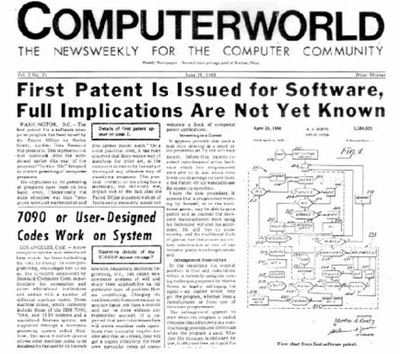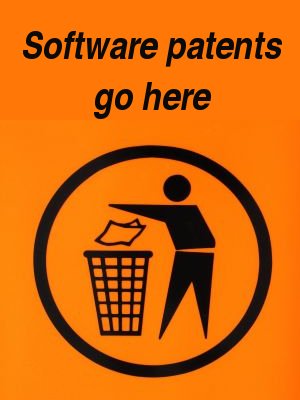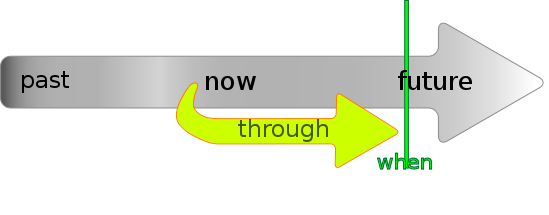Intellectual property thoughts: on Ideas and Patents

Recently we have seen 2 US court rulings that could bring on important changes in intellectual property, one related to Patents & Ideas and one to Copyright & APIs. Even though at first it may seem this is only relevant for the US, as anyone who has ever been involved in IT Entrepreneurship can tell you the US is not only an extremely important market for every business, meaning anyone who wants to be active there has to abide by its rules, but it also sets the tone. In this series of posts we comment on the rationale and implications of these rulings and try to outline some scenarios for the future.

A prophetic headline. Ironically, the person granted the first software patent is now a critic of the software patent system. Source: Patent Progress
A few days ago the Supreme Court in the US issued what could be a seminal ruling for software patents: in a dispute between 2 financial institutions, one claiming that the other one had infringed one of their patents involving a system for intermediated settlement, the court decided that the patent did not cover a concrete software process, but an abstract idea, thus rejecting claimed infringement. Though i have not checked the original patent, judging from the description this seems to be the case indeed. Like so many other software patents out there, what this one seems to describe is essentially a process, while adding the words ‘applied with a computer’.
Why is this important? Because it sets a precedent for abstract patents to be rendered invalid – as they should be. But i should probably explain where i’m coming from on this. At some point, i was pushed by the organization i used to work for at the time to sign off parts of (published) research to be patented. At another point, i was considering claiming a patent on my own for a system i came up with. None of these went through, luckily i may add, but in this context i was forced to look into the issue as best i could given my layman status. As i do not have a legal background, i tried to navigate this space based on my knowledge of IT, common sense and consultation from experts including the European Patent Office.
I still remember the hour-and-a-half informal conversation with the EPO officer i met at a conference very vividly. As the research that my employer was seeking to patent was similar in nature to the one in question by the US court – a process, applied using IT – i was opposed to it being patented for a number of reasons. Not just because i was being forced to give ownership of something that was explicitly created to be in the public domain to become someone’s asset, under foreign law and without even getting something in return, but also because i was certain that this did not make any sense content-wise. How can you patent something like for example sending messages from one participant in a process to the other one, just because the message is sent using IT infrastructure?

Another infamous patent: Google’s Home Page
You can’t. That was the gist of my consultation with the EPO. In my view, that would not make any more sense than it would have to patent a process whereby a horse carriage would send the message over. And that was what the EPO officer concurred to as well (off-the-record, of course). So it’s good to see some sense coming to the software patent field. Processes can not be patented, nor can math and if you ask me, algorithms should fall under this category as well.
Before getting personally involved, i admit i had certain preconceptions. I used to be all against software patents, seeing them not just as a way corporations could establish their monopoly, but also as an unnatural construct that limits innovation and creativity and is used to block rather than facilitate this process. I have heard many counter arguments on this, and tried to take them all in as objectively as possible, but i remain mostly unconvinced.
Case in point, not just the one the recent court ruling was issued on, numerous ones. One of my favorites? The double-click. Yes, believe it or not, someone patented the double-click. Now, contrary to popular belief, that does not mean that you can’t use double-clicking in your software and devices, but it does mean that a. you should pay a fee to do so and b. you are liable to legal action if you do not.
That sounds crazy? Well, welcome to the world of software patents. If you ever take the time to investigate and read some of the patents around, you won’t have a hard time finding an incredible amount of patents that are so abstract and/or so obvious that makes you wonder what purpose they could possibly serve – other than feeding human vanity and the patent system, of course.
Which brings us to another issue. There is the argument that patents are there to protect inventors – one that, in theory, i can relate to. Yes, it does make sense to give some sort of royalties for a limited amount of time to creative people that come up with useful new ideas that are not trivial.
Problem is, the patent registration process is so complex and costly, in practice very few individuals are able to register one. So it ends up being a weapon in the arsenal of corporations, as well as an asset that is counted towards their valuation, with the actual inventors having little -if anything- to gain from this.

Don’t feed the patent trolls. Image: Stable Diffusion
Another aspect of this is patent trolls. A manifestation of the madhouse that patents are, is one of their typical ways of use: companies have a collection of patent to be used as a defense in case their competitors claims infringement on their patents, replying with counter infringement. This is possible exactly because of the way the system works, and it leads to a long and expensive legal battle.
But there is a type of organization (or individual) that specializes in owning patents, and nothing else. Their goal is to file claims against anyone who may be infringing one of their patents, having an advantage over them because they cannot fight back as the “patent troll” is not engaged in any activity that could potentially infringe any patents.
That does not sound very nice, does it? But it get even worse. In many cases, infringement claims are dropped after a settlement. The reason is it takes a tremendous amount of time, money and legal expertise to go to court even in cases when there is little actual grounding. So if this is the case for corporations, imagine what it would be like for an SMB or an individual to be facing infringement claims. This is exactly what so-called bottom-feeding patent trolls do, in the hope of extorting some easy money.
So where does that leave us? It’s pretty obvious to me that the patent system is fundamentally broken and needs to be fixed. I am not saying this is going to be easy, for a number of reasons. But what could be done

Still not convinced? Source: TechRights
regardless of actual legal framework and process reform is adopting a different mindset about this – Coopetition.
Ideas are meant to be shared in order to foster innovation and pretty much nothing is built from scratch or can stay hidden for too long anyway. So instead of trying to put fences around innovation, why not try and find business models that give everyone a fair share, like Tesla has done?


.jpg)

